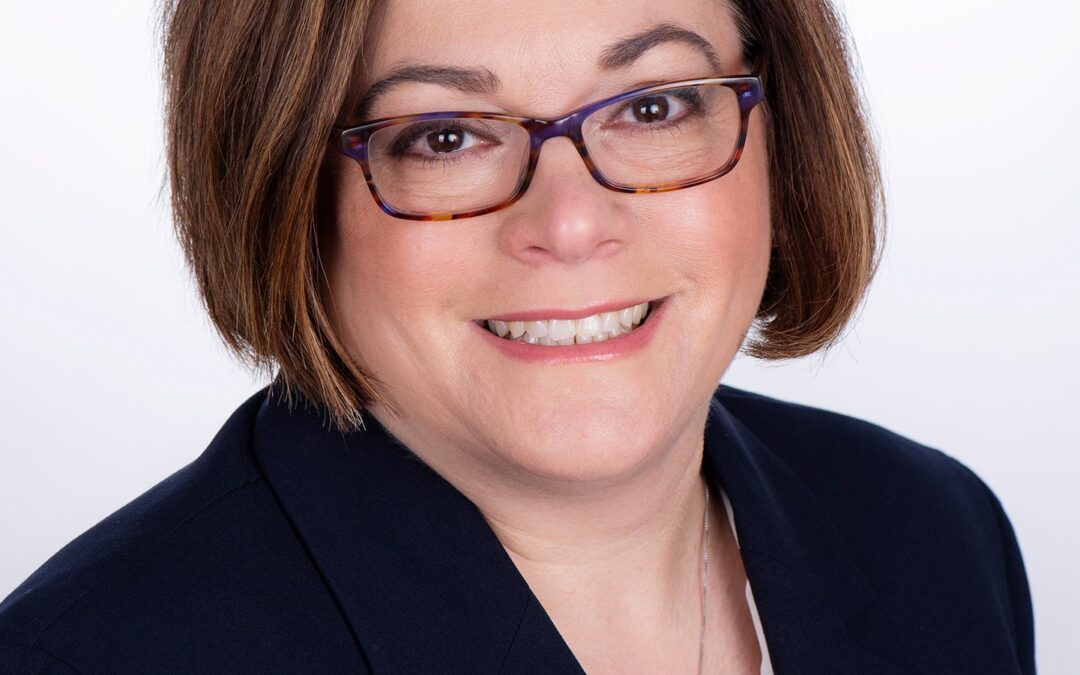When Wendy Shapiro thinks about inpatient psychiatric care, she thinks about her aunt, Shirley.
Shirley “always had a special place in my heart,” Shapiro recalled. “My mom and dad would always have her and her boyfriend come over to play cards and eat dinner at our house.”
According to Shapiro, who became the CEO of the Vermont Psychiatric Care Hospital in May, Shirley had a diagnosis of schizophrenia, for which she sometimes received treatment at residential facilities and hospitals.
“But no one in my family would discuss that with me,” Shapiro said. “I got in this field for her.”
At the start of her career, Shapiro found a job as a mental health specialist on a psychiatric ward where she could visit Shirley during her breaks.
“I worked on the children’s unit, and she was on the geriatric unit, and I would spend time with her,” Shapiro recollected. “My grandmother and my grandfather were already passed – her children didn’t come and visit.”
“At that moment was when I decided I wanted to become a CEO,” Shapiro continued. “To make sure that the people that were receiving services where I worked were getting the support that they needed.”
With a master’s degree in counseling psychology, Shapiro took on a variety of other roles first, from inpatient social worker to director of a crisis program at an emergency department. Eventually, she became the chief executive officer of the Clarion Psychiatric Center in Pennsylvania.
Shapiro had grown up in Philadelphia. But she hoped, someday, to retire to Vermont, a state with which she “fell in love” during a trip at age 23.
“And then I saw this job and it just aligned,” Shapiro said. “So I am extremely, extremely grateful.”
After five months at VPCH in Berlin, where she leads a staff of 173, her feelings about Vermont haven’t changed.
“Vermont is just definitely a little bit more progressive,” Shapiro reflected. “Just the level of involvement and support, even from community members coming up and realizing what I do for a living and saying thank you, and caring, and that level of support for people who are receiving services here as well as the entire system.”
Shapiro singled out Kat Parker, a patient representative for Vermont Psychiatric Survivors, who “comes here every week” to provide peer support and advocacy. She also mentioned that VPCH’s previously sporadic advisory committee had resumed meetings.
The Vermont Department of Mental Health opened VPCH in 2014, three years after the closure of the Vermont State Hospital, to provide intensive care for involuntary patients, which can involve restraint, seclusion, and forced drugging. For nine years, the University of Vermont Medical Center provided its physicians.
On July 1, 2023, DMH entered a new contract with a Pennsylvania-based company, Columbus Medical Services. The decision occurred before Shapiro’s arrival.
As the contractor onboarded new staff, admissions paused, and the 25-bed hospital’s average patient count dropped to its lowest level in years. It hasn’t yet recovered.
But Shapiro argued that the changeover “never changed how we operated.” VPCH managed to hold onto its medical director, who became a Columbus employee.
On Nov. 3, when Counterpoint interviewed Shapiro, VPCH had nine patients on site. It had sufficient staffing, however, to accommodate 21, thanks to what Shapiro described as a recent focus on recruitment and retention.
“We’re putting in various things to really be able to recognize staff and have various fun activities that combine the people who are receiving the services here as well as the staff,” Shapiro said. “We do a lot of socials, barbecues, which is wonderful.”
Columbus still had yet to fill one of the hospital’s three staff psychiatrist positions, but Shapiro pointed to the number of nurses as the relevant factor in determining the hospital’s capacity. VPCH plans to hire more.
Yet advocates and officials have debated how many level-one psychiatric beds Vermont needs. In May, DMH opened the River Valley Therapeutic Residence, a locked “step-down” facility, for the purpose of receiving patients no longer deemed to require hospital care, and several VPCH patients transferred over.
Shapiro expects the patient count to rise again at VPCH. She just doesn’t know how fast.
“Our goal is to be a 25-bed facility,” she said.
The long-term plans of DMH’s administrators in Waterbury may differ. Last spring, they won permission from the legislature to turn a nine-bed wing of VPCH into another residential facility, which this time would serve exclusively patients committed by criminal courts.
“That is something that the central office is focusing on,” Shapiro said. “So I’ve been really focused on my role here, and working with the team, working with the individuals in care here.”
Shapiro emphasized the complex, multifaceted nature of that care. It begins, by her account, with an individualized treatment plan.
“Each person that is here is a part of their own treatment,” Shapiro said. “It’s their goals. Where do they see themselves moving forward?”
Psychologists provide one-on-one therapy, while social workers discuss topics like housing and Social Security. The aim, per Shapiro, is to maximize patients’ chances of success when they return to the community.
“There are numerous groups that are throughout the day,” Shapiro added, “and the recovery services department reassesses that to make sure that the groups that they’re having are meeting the needs of the individuals.”
Shapiro herself hosts a monthly social hour, during which patients can ask her questions and register complaints.
“It’s really having them be a part of how we do things here and having them weigh in and, if they have a question, having them understand why something is a certain way,” she said. “Everyone here has a voice.”

